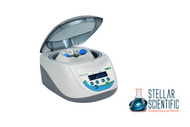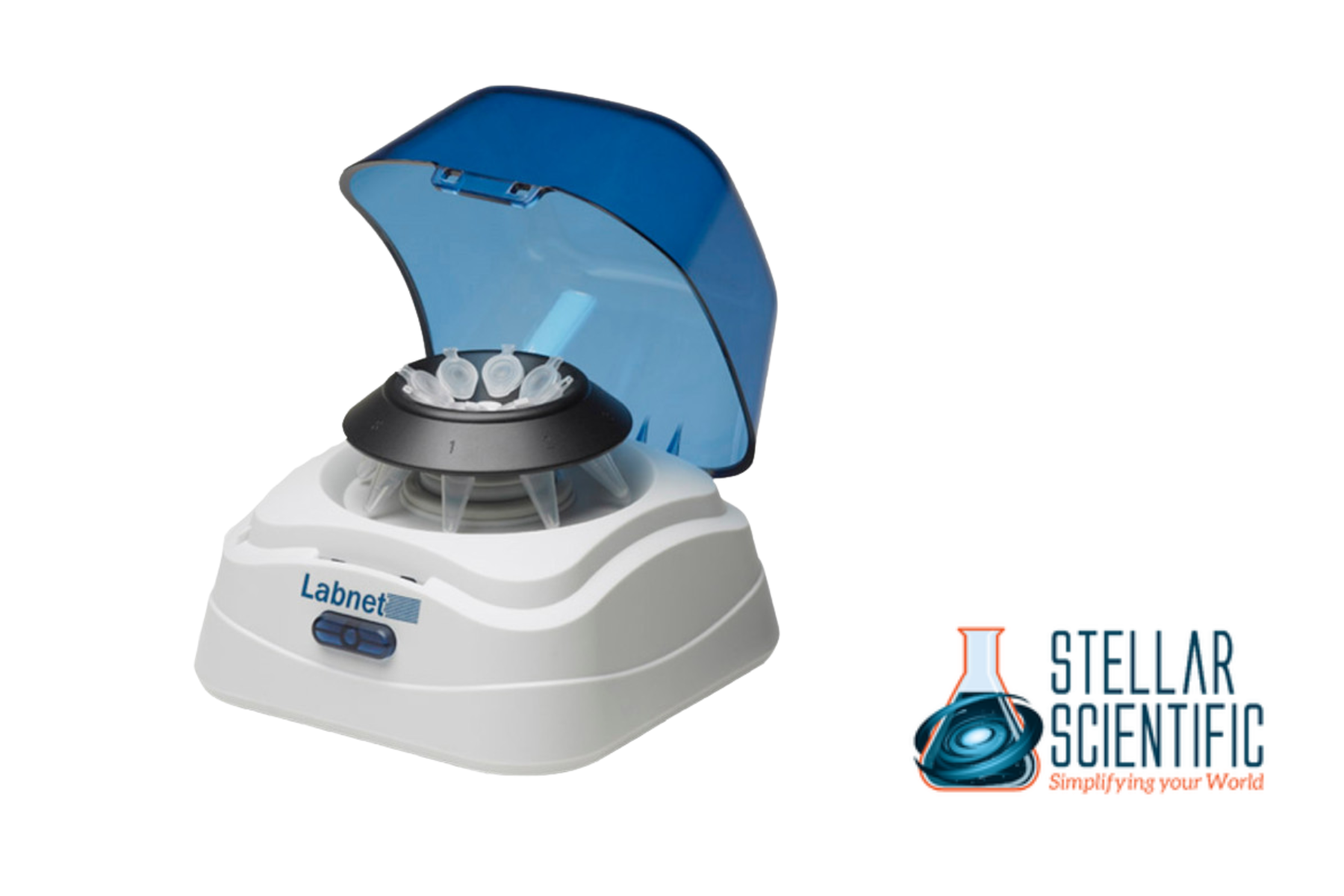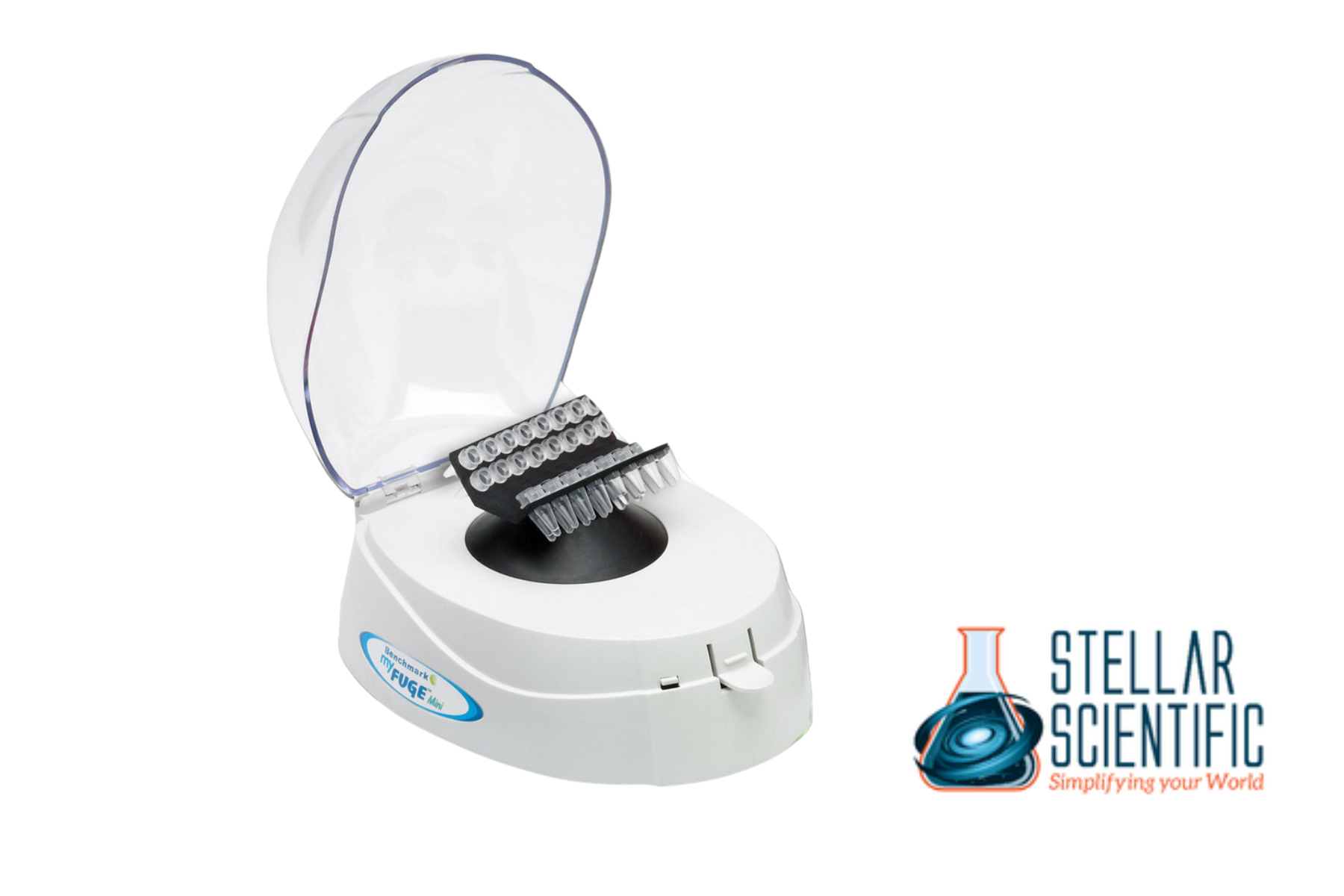Optimizing Laboratory Throughput with High-RCF Mini-Centrifuges: Physics and Practicality
16th Sep 2025
Laboratory efficiency is increasingly critical as research demands grow and sample volumes rise. A key component in achieving high throughput is the use of mini centrifuge technology. Mini centrifuges and microcentrifuges are designed to handle small-volume samples with high precision, reducing processing times and improving laboratory workflow. Their compact design makes them ideal for benchtop use, where space is often limited, yet sample separation remains essential.
The Physics Behind High-RCF Mini-Centrifuges
High relative centrifugal force (RCF) is the key metric determining the efficiency of a centrifuge. RCF is the force exerted on a sample relative to Earth's gravity and is calculated based on rotor speed and radius. A benchtop microcentrifuge capable of high RCF accelerates the sedimentation of particles in a sample, effectively separating components such as cells, proteins, or nucleic acids.
The principle of centrifugation is grounded in Newton's laws of motion. When a sample spins rapidly in a centrifuge, denser particles move outward to the bottom of the tube, while less dense components remain at the top. The efficiency of separation is directly influenced by RCF; higher forces reduce centrifugation time without compromising sample integrity.
Practical Advantages for Laboratory Throughput
One of the main advantages of integrating high-RCF microcentrifuge machines into lab workflows is the substantial time savings. Processing multiple samples quickly enables laboratories to maintain high throughput and manage larger workloads efficiently. This is particularly valuable in clinical, molecular biology, and biotechnology laboratories, where rapid sample turnover is essential.
Mini centrifuges also offer flexibility. Their ability to handle various tube sizes and sample volumes allows scientists to optimize protocols without needing multiple instruments. This versatility is essential for labs conducting diverse experiments, from DNA extraction to cell culture preparation.
Design Considerations for High-RCF Mini-Centrifuges
When selecting a high-RCF mini centrifuge, several practical considerations can enhance laboratory performance. Key factors include rotor design, tube compatibility, and noise levels. Rotor types, such as fixed-angle or swing-bucket, affect sedimentation patterns and are chosen based on the intended application.
Additionally, the compact footprint of a microcentrifuge reduces bench clutter and allows for efficient integration into existing laboratory layouts. Many models also feature intuitive controls, digital displays, and programmable settings, facilitating consistent operation and reducing user error.
Maintaining Sample Integrity
High-RCF centrifugation requires careful attention to sample handling. Excessive force or improper balancing can lead to tube breakage or sample degradation. Laboratories must ensure that tubes are correctly loaded and balanced to maintain consistent results. Many modern mini centrifuges include safety features such as automatic imbalance detection and lid locks, which protect both samples and users.
Enhancing Laboratory Efficiency
The strategic implementation of high-RCF mini centrifuges directly contributes to overall laboratory productivity. By reducing centrifugation time, minimizing instrument footprint, and improving sample handling, laboratories can streamline workflows and allocate more resources to critical experiments. This allows scientists to focus on data analysis, experimental design, and discovery rather than routine sample preparation.
Moreover, benchtop microcentrifuge models are particularly beneficial in settings where multiple users share equipment. Their ease of use, rapid cycle times, and minimal maintenance requirements make them suitable for high-demand environments, including academic research labs, clinical diagnostics, and biotechnology facilities.
Cost Efficiency and Sustainability
Beyond improving throughput, high-RCF mini centrifuges are cost-efficient. They consume less energy than larger centrifuge models and require smaller sample volumes, reducing reagent costs. Additionally, the durability and low maintenance needs of quality microcentrifuge machines ensure long-term value for laboratories seeking both performance and affordability.
Integrating High-RCF Mini-Centrifuges into Laboratory Workflow
Implementing high-RCF mini centrifuges into laboratory operations requires careful planning. Positioning instruments strategically, training staff on proper usage, and establishing maintenance schedules are essential steps. By standardizing protocols and integrating these devices into daily workflows, laboratories can achieve consistent, reproducible results across multiple users and applications.
Future Applications and Considerations
As laboratory demands continue to evolve, the role of high-RCF mini centrifuges is likely to expand. Their utility extends beyond basic sample separation to include applications in molecular diagnostics, point-of-care testing, and small-scale industrial research. Understanding the physics, operational considerations, and practical benefits of these instruments ensures laboratories remain efficient and capable of meeting diverse experimental requirements.
Conclusion
High-RCF mini centrifuges and microcentrifuge machines play a pivotal role in modern laboratory workflows. By combining the principles of centrifugal physics with practical design features, these instruments optimize throughput, maintain sample integrity, and enhance overall laboratory efficiency. Their versatility, ease of use, and cost-effectiveness make them indispensable tools for research and diagnostic settings.
About Stellar Scientific
Stellar Scientific provides a comprehensive range of laboratory equipment designed to enhance research efficiency and accuracy. Our selection of mini centrifuges, microcentrifuges, and benchtop microcentrifuges offers reliable performance for diverse laboratory applications. We are committed to supplying high-quality scientific instruments and supporting our clients in achieving precise, reproducible results. Visit our website at Stellar Scientific to explore our full range of products and services.



